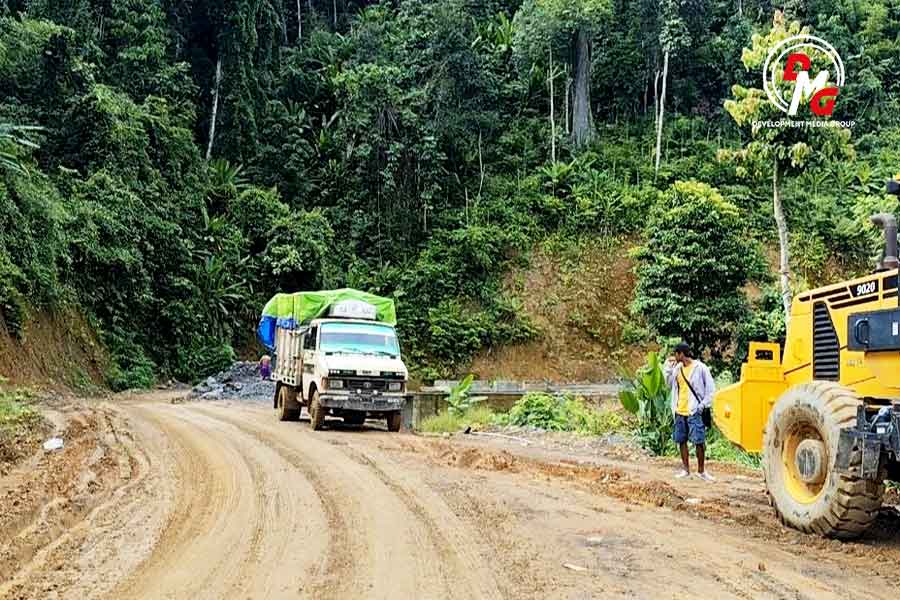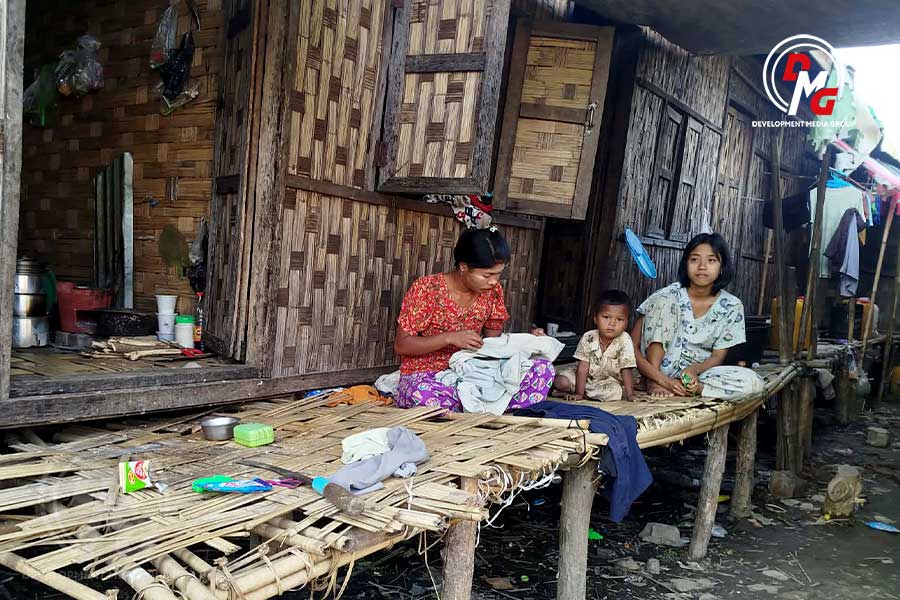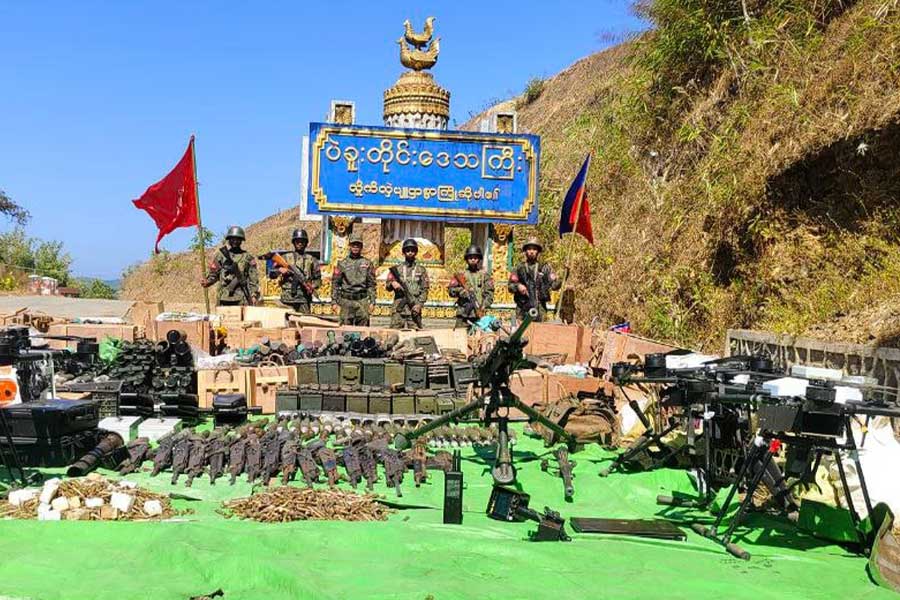- Weekly Highlights from Arakan State (Feb 2 to 8, 2026)
- Arakanese merchants seek access to Indian market via Mizoram trade route
- Education crisis deepens for IDP children in Arakan State
- Coalition forced led by AA advances toward junta No. 16 weapons factory in Bago Region
- A Glimpse Into the 2026 Arakan State Parliament
Salt surplus has Arakan State suppliers eyeing Bangladesh market
Nearly 10,000 tonnes were used for domestic consumption and other needs, but more than 10,000 tonnes remained unsold, according to the Arakan State Salt Production Division.
04 Aug 2023

DMG Newsroom
4 August 2023, Sittwe
Of the 20,000 tonnes of salt produced in Arakan State last year, about 10,000 tonnes have not yet been sold, with salt farmers looking to export the surplus to Bangladesh.
Nearly 10,000 tonnes were used for domestic consumption and other needs, but more than 10,000 tonnes remained unsold, according to the Arakan State Salt Production Division.
Salt farmers say the remaining salt is being stored in warehouses.
“If the authorities make arrangements so that the salt we have in hand can be exported to Bangladesh or India at a reasonable price before we pay the interest to the junta for November, we can focus more on salt production for the coming year,” said U Kyaw Maung Than, member of the Kyaukphyu Township salt farmers association.
Bangladesh and Myanmar’s military regime reached an agreement in March 2022 to export salt from Arakan State to the South Asian country.
Loan arrangements between the junta and salt farmers in Arakan State have since become a concern.
“We have promised to repay the loan from the junta within 12 months, with interest paid every six months. Repayment of the junta’s loans depends on the foreign market, and if salt cannot be sold, the price of salt will fall, and supply will be high and demand will be weak,” said U Phyu Daung Gyi, a local salt farmer from Shwenyoma Village in Kyaukphyu Township.
There are around 50 salt farmers and 300 acres of salt farms in Kyaukphyu Township’s Shwenyoma Village.
“If salt farmers want to export salt from Arakan State, they need to cooperate with relevant organisations. Salt farmers need to report to the Arakan State military council and find merchants who will buy salt from Arakan State,” said an official from the Arakan State Salt Production Division.
DMG continues to attempt to contact officials from the Arakan State military council about being able to sell salt stockpiles to Bangladesh, and potentially other foreign markets.
“If the salt is not sold, then when the salt season starts, we will have to find a way to get money and make capital. If we don’t get it, we have to borrow money from others. We are operating our salt business by borrowing money from others,” said Daw Ma Ngwe Khin, a local woman from Shwenyoma Village.
There are about 7,000 acres of salt farms in Arakan State, with the largest number in Kyaukphyu Township and smaller operations in Thandwe, Gwa, Sittwe, Pauktaw and Rathedaung townships.
From 1993 to 2004, nearly 150,000 tonnes of salt were exported from Arakan State to Bangladesh, but the purchases were stopped for a variety of reasons for several years thereafter. In 2012, Bangladesh bought 30,000 tonnes of salt from Arakan State, but that was the last purchase made until this most recent deal because the salt was deemed of insufficient quality.
















.jpg)
